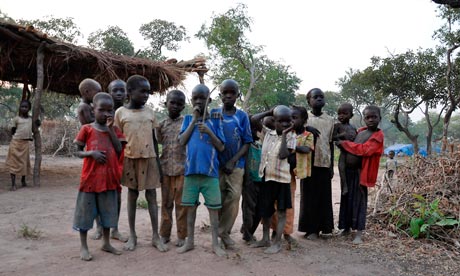South Sudan parliament discusses child rights
By Bonifacio Taban Kuich
November 20, 2012 (KAMPALA) – South Sudan parliamentarians’ commemorated the 23rd Convention of the Rights of Children (CRC) by holding a debate and art show on the subject on Tuesday.

In the context of agreeing to undertake the obligations of the convention, national governments commit themselves to protecting and ensuring children’s rights and decide to be held accountable for this commitment before the international community.
“The South Sudan Child of Act of 2008 is a good example of how South Sudan has made efforts to domesticate the CRC even though there are still some challenges in the implementation of their national legislation. To cement these efforts and to ensure greater investment, the Republic of South Sudan needs to demonstrate to the rest of the world its commitment to its children by ratifying the CRC,” said Elizabeth Quaye, the UN Children’s Fund (UNICEF) officer-in-charge in statement to Sudan Tribune on Tuesday.
In South Sudan child marriage (under the age of 18) remains prevalent. One of the rights afforded to children under the convention is the Right to Protection from Marriage.
Rebecca Okwaci, South Sudan’s deputy minister for general education and instructions said, “it is important for all of us to campaign against it, as it robs young girls of their childhoods, a chance to go to school and exposes them to domestic violence, HIV, and even death during childbirth.”
Okech Vincent, a 15 year old student from Eastern Equatoria welcomed the move by the parliament, saying “South Sudan is not only the newest nation but also one of the youngest with over 50 per cent of the population under the age of 18. We are the future of South Sudan. It is very important that the government and all partners ensure their rights, to protect them and to ensure their voices are heard.”
(ST)
